Week 1: Physics Fundamentals
Discover the four fundamental forces of the universe and how to detect two of them: gravitational and electromagnetic! We're going to learn the difference between weight and mass by visiting different planets, detect electrostatic flashes around the house, and build a galvanometer to prove the scientific link between electricity and magnetism. We'll also get to build a working Hovercraft, and you get to pick which design you'd like to try out! (This week covers Unit 1.)
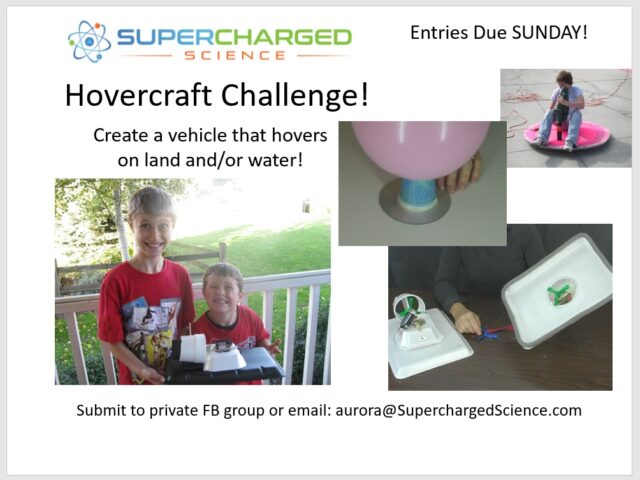
Week 2: Physics of Motion: Velocity & Acceleration
Get ready to soar, zoom, spin, gyrate and move as you discover Newton's Laws of Motion through this fast and furious class in inertia, mass, velocity, distance, speed, g-force and acceleration! You'll get to drop kick, rocket launch, spin up, and blast skyward as you create several different projects in projectile and freefall motion as we do the Egg Drop Challenge together! (This week covers Unit 2.)
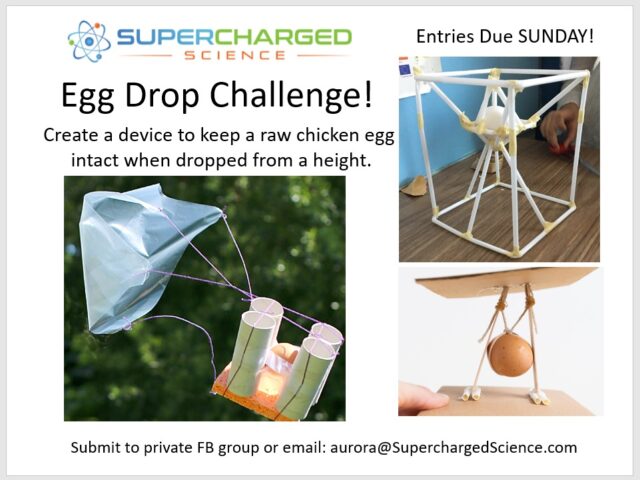
Week 3: Energy
Energy is the mover and shaker of the universe! Did you know that the energy on Earth actually comes from the sun? The energy from sunlight gets transformed into chemical energy in plants, which get eaten by animals and transformed into other forms, including heat, light, sound, and more. Let's take a closer dive into the world of energy and discover how energy is constantly transforming between kinetic and potential energy by building several homemade catapults! (This week covers Units 4 & Unit 5.)
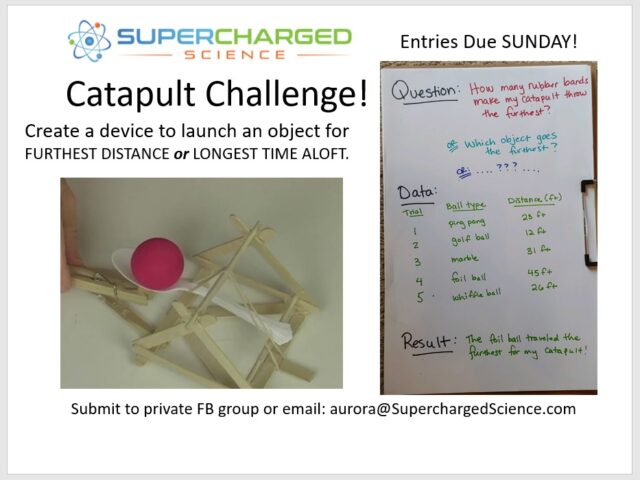
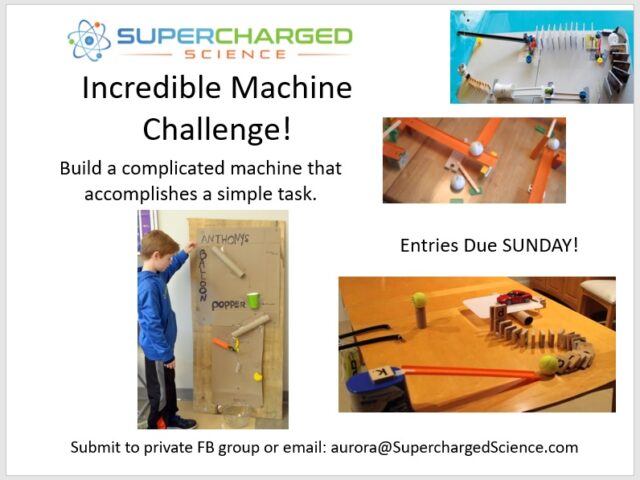
Week 5: Sound Energy: Vibrations, Frequency and Resonance
Sound is a form of energy - it's energy traveling as a wave. All sounds come from vibrations. Sound can be very powerful. It’s basically made up of invisible waves of energy that go through things like the air, the ground, water, or through solid stuff like guitar strings. But it needs something in order to move. (This week covers Unit 6.)
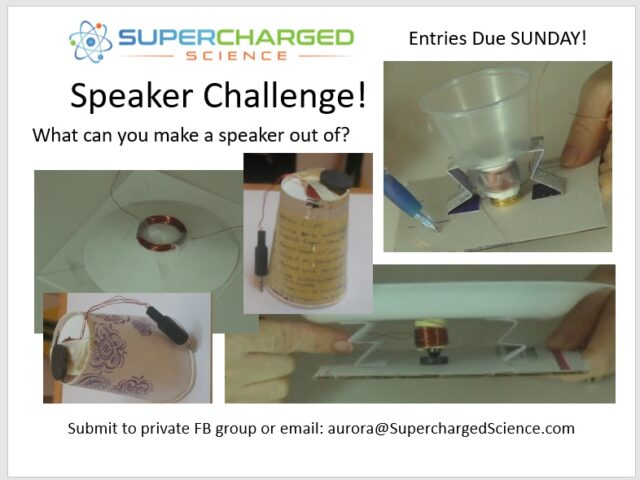
Making Your Own Science Lab Worksheet
How do you create a science lesson worksheet that really captures what you're trying to do with your lessons? When I taught mechanical engineering at Cal Poly state university, one of the big things that students struggled with was creating their own data tables, because they had relied on other people / textbooks / teachers to always provide them with a "worksheet" to go with their "lab".
This means that they never developed the ability to generate their own work. What's worse, they didn't really understand how to think like a scientist. And that's something you can start doing now, no matter how old/young your kids are!
There's really nothing magical about a science worksheet or data tables. You don't need a "printable" or anything fancy. These data tables and worksheets are actually just an expression of what naturally comes out of your science experiment. And the whole point to doing an experiment is to answer a question.
So we start with a question, and we make sure it's something we can design an experiment around it, so it has to be answerable with something that is measurable. The rest is really very easy!
The ideas in the video here are taken from my college-level lab reports that we had students turn in at the end of a standard three-hour experiment. This format has been adjusted to hone in on the essential things you must have to make it a real science lab data sheet.
Field Trip: Marine Biology & the crew of the E/V Nautilus
We're going to connect with researchers on board the E/V ("Exploration Vessel") Nautilus, which is a 68-meter research vessel owned by the Ocean Exploration Trust under the direction of Robert Ballard, the researcher known for finding the wreck of the Titanic and the German battleship Bismarck. The vessel's home port is at the AltaSea facility in San Pedro in the Port of Los Angeles, California. Let's take a look at what it's like to be a scientist aboard a research vessel!
